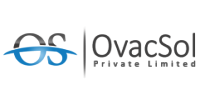Why HRMS is Beneficial for Performance Management
As companies and organizations strive to be competitive in the market it has become necessary to look into finding ways of making processes more efficient and increasing productivity. Human Resource Management Systems (HRMS) help businesses and organizations manage their human capital effectively. One of the HRMS’s value propositions for the businesses is performance management. This article is an exploration of what performance management is specifically from the HRMS perspective, patterns, advantages, and frequently asked questions (FAQs).
So what HRMS is?
HRMS is an abbreviation for Human Resource Management System. The software focuses on performing HR tasks such as recruiting, payroll, employee records, performance appraisal, tracking, and training. In other words, HRMS enables HR arrays to perform functions more effectively, to enhance interaction with staff, and to track business performance in real-time.
Performance management is evaluating the level of employee’s work and their contributions towards productivity of the organization. In the past, people basically provided annual evaluations and feedback. However, with the introduction of HRMS tools, performance management has shifted to be more automated, systematic, and continuous.
Benefits of HRMS for Performance Management
Smoother End to End Performance Appraisal
Performance evaluations help managers keep track of employee performance and determine areas that need further improvement. In the past, performance appraisals had a lot of issues such as time consumption, subjectivity and inconsistent application. HRMS makes this easier and more efficient with its proprietary system for performance evaluation and appraisal tracking.
An HRMS serves as a central repository for performance data, enabling supervisors to provide ongoing feedback and assess employee performance. It integrates goals, feedback, and reviews, helping maintain fairness and equity in the organization.

Enhancing performance management reviews with HRMS for better employee tracking.
Assessment Feedback and Performance Monitoring, Without Intermission
The periodic approaches to performance management through performance reviews in a typical organization were bi annually and annually. However, this has changed with automation systems such as HRMS.Managers can now scrutinize employees at any time and provide appropriate feedback and interventions.
There are also more satisfying assessments wherein employees must receive positive feedback or negative feedback at any time when they are high degree of performance or low level. This enhances tact by keeping employees on notice and improves performance as the workforce can address issues quickly.
Decision Making Based on Information
Every organization requires an intelligent tool to enhance the overall set objectives, vision, and mission or develop the broader scope. Additionally, the Performance Management System efficiently tackles this using tools like appraisal systems, competency frameworks, pay-for-performance, and career advancement tools. These tools ensure that employees are rewarded based on results and performance, not antecedents.
General Performance Management and Personal Performance Act Assessment can identify training and performance issues, showing where employees need development or where deficiencies exist, and address them..
Integration of Personal Goals
Having a defined target is crucial to ensuring that the organization’s higher-level aims positively reflect in employees’ performances. The HRMS makes it possible for organizations to set and share individual and team performance objectives. I would like to highlight the critical role of these systems in helping managers set and align employees’ core strategy with the company’s vision.
So, this is another very important factor for motivating employees’ self-image as they can see and measure individual performance indicators for which they are responsible in the preset goal framework. Nothing motivates employees more than when their personal objectives align with the concepts and strategies the company is striving toward.
Employee Development and Training
Performance management involves personal assessment as well as improvement. HRMS tracks employee achievements through training and progress. It also recommends training for areas with weaknesses by monitoring each employee’s training history.
This strategy improves performance, employee retention, and engagement. Employees are more likely to stay with an organization that supports their development and has a clear plan for their growth.
Enhanced Communication and Collaboration
An HRMS improves the communication gap that might exist between the managers and employees by providing one platform where feedback, performance appraisal, and target setting occurs. Such communication promotes transparency as employees appreciate and feel appreciative of the support.
HRMS provides a structure that enhances collaboration by motivating employees to work towards shared goals. Integrating HRMS with other business systems, like project management applications, ensures that all parties involved are aware of the performance targets.
Performance Metrics That Are Personalized
Performance metrics within industry and aimed objectives frameworks differ from one organization to another. Such a scenario is adaptable with the HRMS systems as organizations can set up relevant performance measures with the HR system. HRMS allows businesses to set performance indicators that include sales targets, satisfaction targets and even project targets completion.
So, this degree of customization means that managers will evaluate employees based on relevant criteria, which in most cases will be their roles. This also leads to accurate assessments and improved outcomes.
Improving Employee Engagement
At the end of the day, the more engaged and committed employees are, the better they are likely to perform. HRMS seeks to enhance employee engagement through recognition, rewards and providing career advancement opportunities. Employees are able to showcase their achievements, get feedback instantly and set achievable goals which complement the company.
Also, HRMS may include options for managers to appreciate and reward employees for their work, which can increase motivation and enthusiasm. Through such HMRS, employees are encouraged in a culture that values recognition and feedback, hence increased engagement and ownership.
Administration load Issued
Performance management occasionally attracts administrative burden, especially when performance appraisals involve a large number of employees. HRMS handles most administrative tasks of performance management, such as scheduling performance review meetings, soliciting feedback, and generating reports.
HRMS performs tasks that are somewhat beyond the administrative day-to-day activities of HR departments, relieving them to undertake more strategic initiatives. This also makes sure that performance management processes are efficient, accurate and more automated cutting the chances of errors.
Regulatory Adherence and Documentation
HRMS systems help organizations comply with labor laws by accurately and promptly maintaining employee performance records. In case of conflict or investigation, HRMS ensures strong record-keeping of appraisals, feedback, and development plans.
This limits the likelihood of legal disputes arising from the performance management systems in place allowing the organization to retain fairness and justice in its practices.
How Employees’ Experience is Enhanced by HRMS
The existence of PM technology in HRMS and performance review systems benefits both the organization and employee experience. Employees who understand their performance and growth areas are more likely to feel appreciated and supported.
And in addition, most HRMS systems include self-service capabilities enabling individuals to monitor their own performance, establish personal targets and assess their development. This self-empowerment increases satisfaction with the job and allows the employees to be in charge of their own careers.
Frequently Asked Questions (FAQs)
What are the primary benefits of HRMS in managing the performance?
There are many benefits but the key ones involve ease of performance appraisal, instant feedback, making decisions based on data, setting and working towards goals, effective interacting and more satisfied employees. HRMS does lower the amount of paperwork and eliminates legal risks also.
Do HRMS systems have robust features that can be adapted in line with the organizational requirements of performance management?
Yes they are in fact very flexible. Organizations can create their own target performance indicators, performance criteria, style of feedback and development in accordance with the aims of the organization.
In what ways can HRMS assist with concerned parties in the best interest of employee development?
HRMS makes it possible to follow an employee's abilities, education, and other indicators of activity. It helps HR recommend appropriate training courses and target their attention in the right direction when seeking to close the existing employees’ skill deficits.
HRMS: equally advantageous for small and large scale business?
Yes, HRMS helps businesses irrespective of their size. As big enterprises might have such sophisticated systems, small and medium enterprises can also utilize HRMS tools to manage their performance management tasks and enhance the productivity of their employees.
What facilities HRMS offers to enhance the interaction of the managers and the employees?
HRMS enables all processes of performance appraisal, evaluation, and planning to be performed in a single platform. This goes on to create the necessity of regular communication between the managers and employees, thus promoting openness and cooperation.




